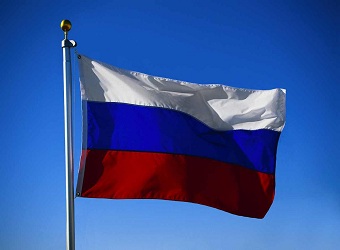Turkey’s latest political slaying could have come from any number of directions.
The vicious, entangled war involving Turkey, Russia, Syria and a dozen other combatants got more confusing on Monday when Russia’s ambassador to Turkey was fatally shot. Andrey Karlov was gunned down while giving a speech at an art gallery in the Turkish capital.
A solitary gunman, whom Turkey’s interior minister confirmed was a Turkish police officer, was killed by security forces following the assassination. Video from the scene showed a shouting man in a black business suit and tie standing over the ambassador with a handgun.
There was no immediate confirmation about the gunman’s motives or possible affiliations — but several groups in the region feel powerful animosity toward Russia and Turkey.
In neighboring Syria and throughout the Muslim world, people are outraged at Russia for bombarding Aleppo, which has suffered thousands dead in the civil war against Syrian strongman Bashar Assad.
“Russia has been on the wrong side from the start” in the Syrian war, especially given that most of the victims of the Assad regime are Sunni Muslims, and Sunnis are a large majority among Muslims in the Arab world and in Turkey, retired U.S. General Barry McCaffrey told CNBC.
An NBC producer who witnessed the shooting said the assailant addressed Ambassador Karlov in Russian before shouting “Allahu akbar” in Arabic. The phrase means “God is great.” The Associated Press reported that the gunman shouted about Aleppo, in Turkish.
Another enemy of both Russia and Turkey is ISIS. The two countries have cooperated in fits and starts over the last year against the cult-like terror group, which controls whole swaths of Syria. ISIS has carried out a wave of murderous bombings in Turkey this year.
Turkey also has fought a long-running, low-level domestic war against elements of its Kurdish population, which lives primarily in Turkey’s east. Karlov’s killing could create tension between the two countries and embarrass Turkish President Recep Tayyip Erdogan.
There was no immediate confirmation about the gunman’s motives or possible affiliations — but several groups in the region feel powerful animosity toward Russia and Turkey.
In neighboring Syria and throughout the Muslim world, people are outraged at Russia for bombarding Aleppo, which has suffered thousands dead in the civil war against Syrian strongman Bashar Assad.
“Russia has been on the wrong side from the start” in the Syrian war, especially given that most of the victims of the Assad regime are Sunni Muslims, and Sunnis are a large majority among Muslims in the Arab world and in Turkey, retired U.S. General Barry McCaffrey told CNBC.
An NBC producer who witnessed the shooting said the assailant addressed Ambassador Karlov in Russian before shouting “Allahu akbar” in Arabic. The phrase means “God is great.” The Associated Press reported that the gunman shouted about Aleppo, in Turkish.
Another enemy of both Russia and Turkey is ISIS. The two countries have cooperated in fits and starts over the last year against the cult-like terror group, which controls whole swaths of Syria. ISIS has carried out a wave of murderous bombings in Turkey this year.
Turkey also has fought a long-running, low-level domestic war against elements of its Kurdish population, which lives primarily in Turkey’s east. Karlov’s killing could create tension between the two countries and embarrass Turkish President Recep Tayyip Erdogan.
The shooting on Monday adds a wrinkle to a complicated relationship between Russia and Turkey — rivals going back centuries — which over the last year have switched from being adversaries to pseudo-allies over the bloody war in Syria.
Erdogan was enraged with Russia when it first entered the war, and Turkey shot down a Russian warplane over its airspace in June.
But Erdogan made a turnaround with Russia almost immediately after the coup attempt. On the night of the coup, Russia tipped off Erdogan about unusual movements among Turkish military units, Bremmer said, potentially saving the Turkish president’s life.
In the meantime, the assassination of Karlov is unlikely to dramatically alter anything in the war-wracked region. A senior Russian parliamentarian told the Interfax news agency that the assassination will not disrupt previously scheduled talks between Russia, Turkey and Iran in Moscow.
“The Russians will express their gravest possible concerns, and Erdogan will use this as an excuse to crack down on political enemies as much as possible,” Bremmer said.
A Turkish security official on Monday already was linking the assassination to a U.S.-based cleric whom it has previously blamed for its civil unrest, usually before Ankara makes waves of arrests.
McCaffrey described the killing of one ambassador as unfortunate but only a “footnote” in the scope of the wider war.
“The much larger issue is a half million dead in Syria,” he said.
Turkey has struggled with a steep drop in foreign investment and a plunging currency that has lost 20 percent of its value against the dollar this year. The iShares MSCI Turkey ETF and VanEck Vectors Russia ETF were trading lower Monday.
Source: CNBC


